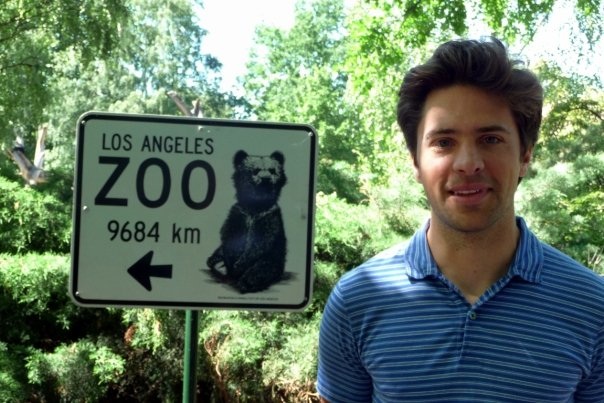 Dr. Erik Kenyon teaches his students to ask questions. “We have this kind of test-taking culture, and we train people to answer questions,” he said. “But we don’t train them to ask them. And we sort of train them not to ask them.”
Dr. Erik Kenyon teaches his students to ask questions. “We have this kind of test-taking culture, and we train people to answer questions,” he said. “But we don’t train them to ask them. And we sort of train them not to ask them.”
“What is a good life?” is the main inquiry that drives most of his classes, including his new neighborhood class.
Kenyon often meets with students in his office, which holds around nine people. Attached to Rex Beach, his office has enough space for a round table, a couch, and several chairs. His bookshelves contain everything from Plato to Diary of a Wimpy Kid to Marvel comic books to Frog and Toad. Star Wars and Dr. Who posters dot the walls. Kenyon’s office is designed as a place for students to ask questions.
“What are we doing? What are the liberal arts? What are the ‘gen-eds’? That’s kind of cross-pollinated with my own research. I think for all of us, we need to think beyond what we are doing here,” he said.
Kenyon is a visiting assistant professor in Classical Studies and Philosophy at Rollins College. He is a familiar face on campus, often seen working out at the gym or hanging out in the library. He conducts research on higher education and on what it really means. Kenyon’s dissertation focuses on the philosophy of St. Augustine, who effectively founded the liberal arts. He is in the process of publishing his work with Cambridge.
After much discussion and planning, Kenyon wanted to find a community engagement opportunity for his new neighborhood class.
“It could have been a train wreck if my students didn’t want to dive into it, but they have,” said Kenyon.
Dr. Kenyon’s neighborhood class, Socrates and the Art of Living, is in the Innovate, Create, Elevate neighborhood and fulfills the Humanities credit. The community engagement component of the class lets students partner with local Fern Creek Elementary School to teach philosophy to gifted fourth and fifth graders.
“Who knew that children would be not only willing to learn about philosophy, but also tackle huge questions on their own?” asked Alon Hersch ‘18, a student in Kenyon’s class. “I would have never taken up philosophy in any way if not for the neighborhood system, and I’m glad I did.”
No matter what type of class he is teaching, Kenyon wants to teach his students how to ask questions about their lives and education.
Kenyon answered one of his own questions, regarding the liberal arts: “The point of education is to live well.” But, in true philosopher fashion, he quickly followed it up with another question.







Be First to Comment